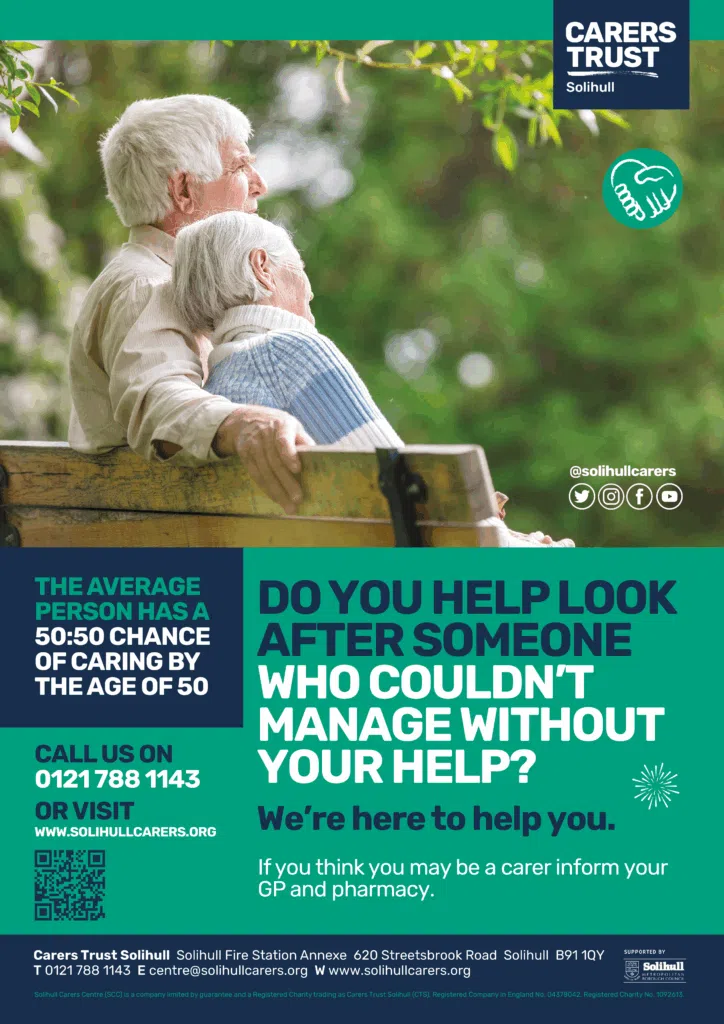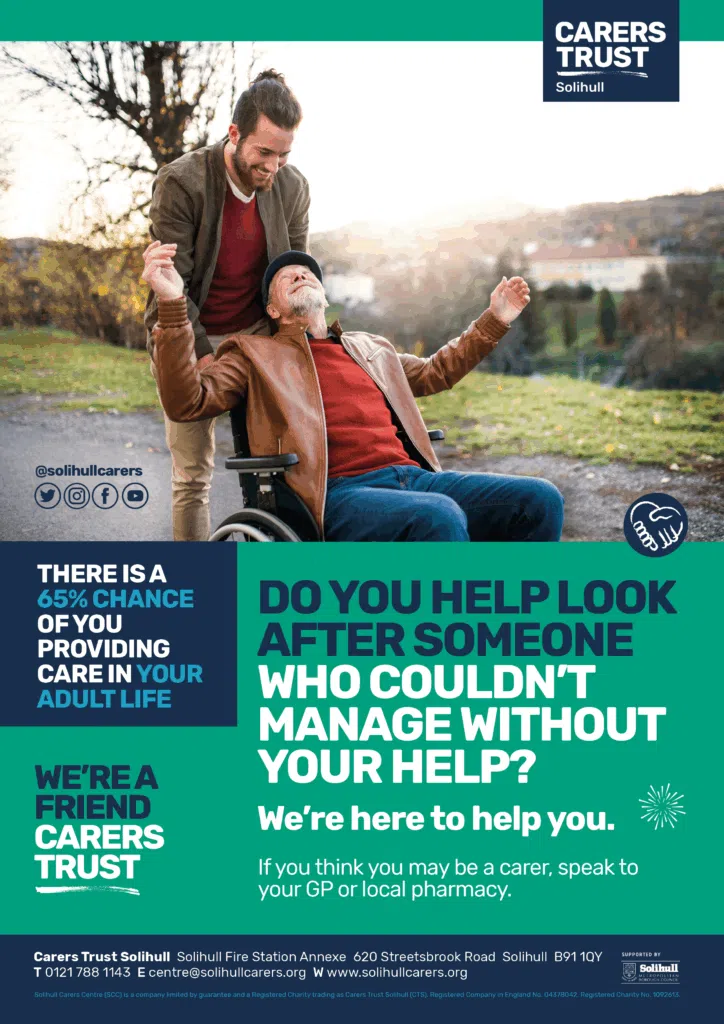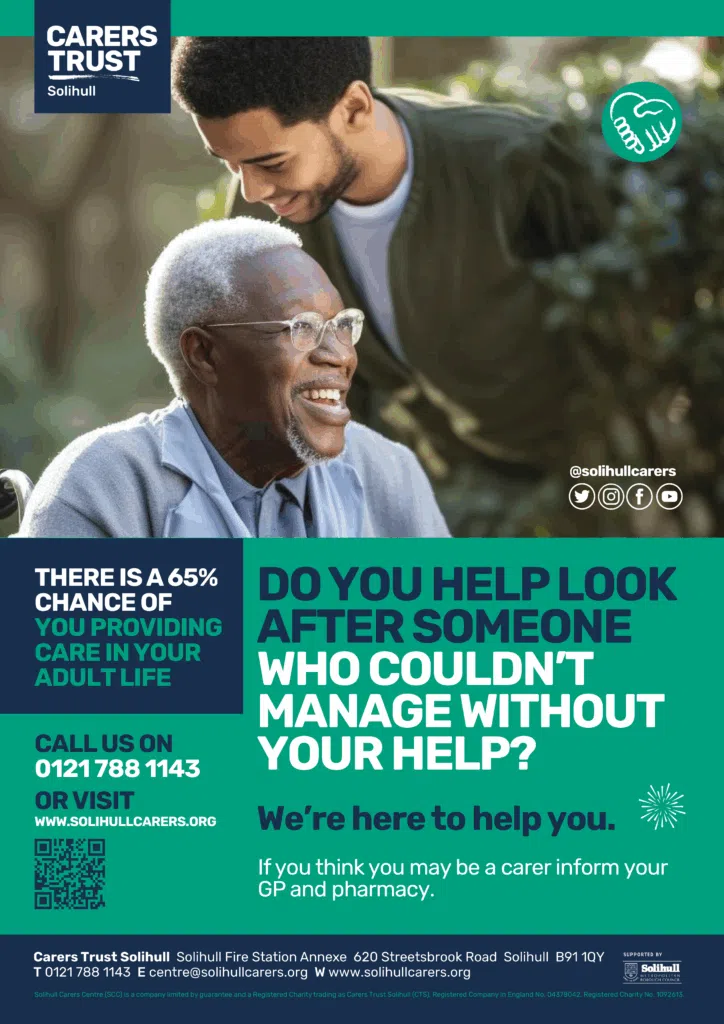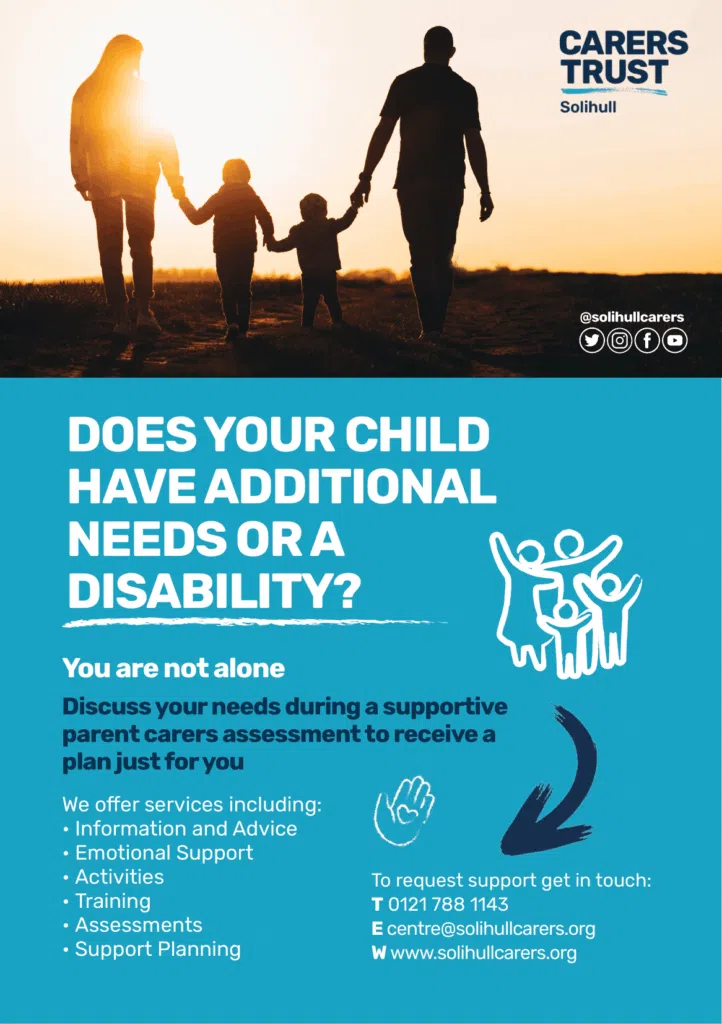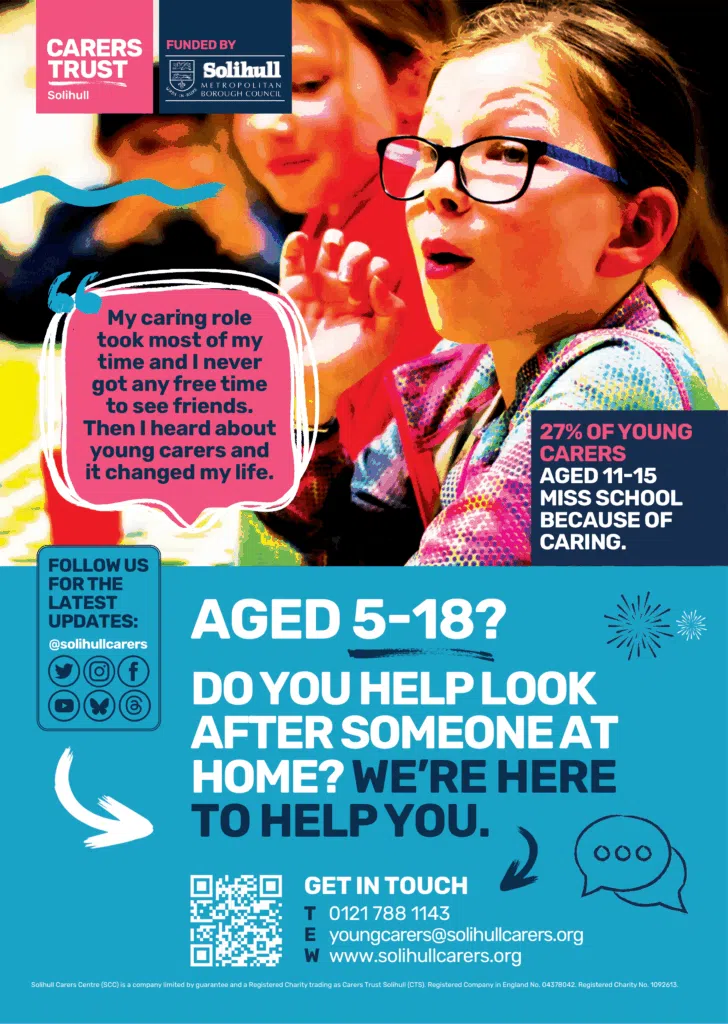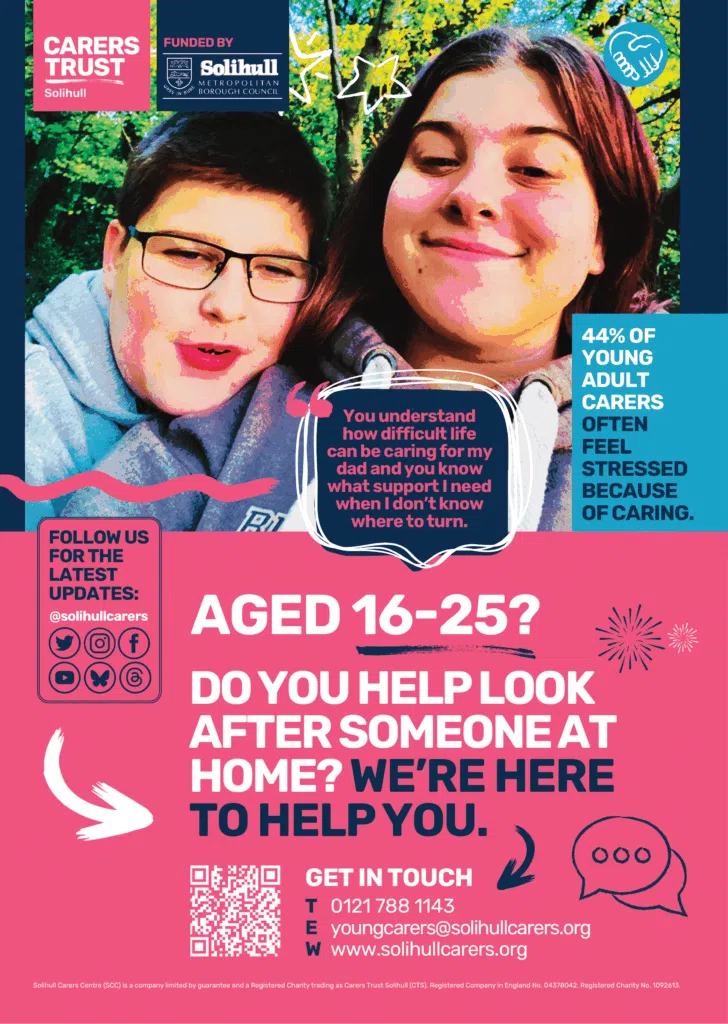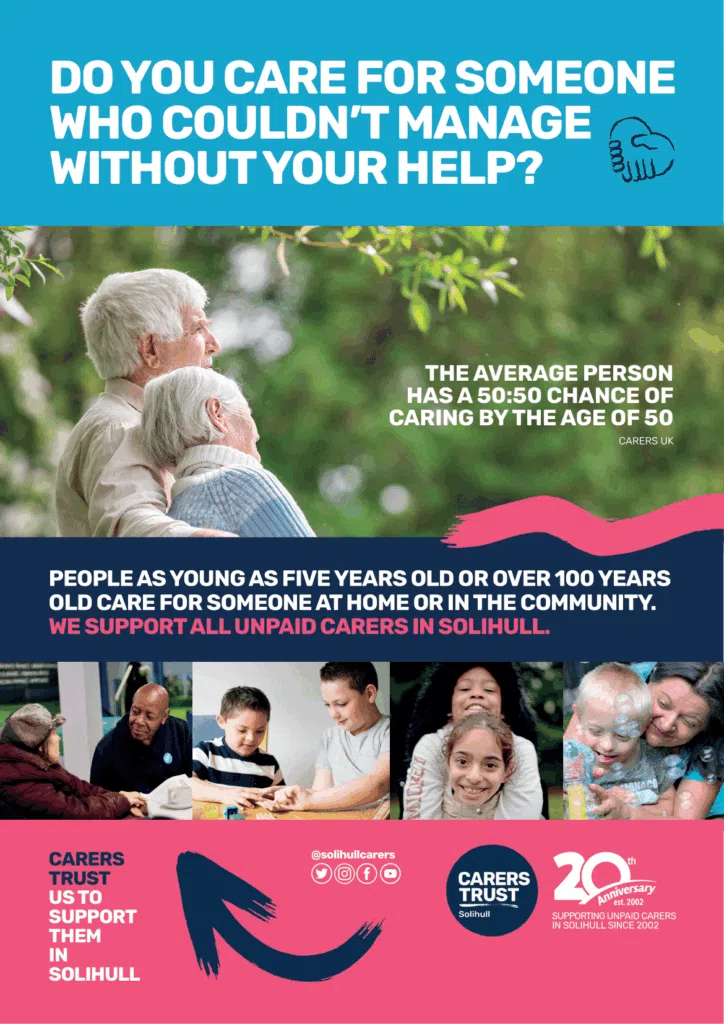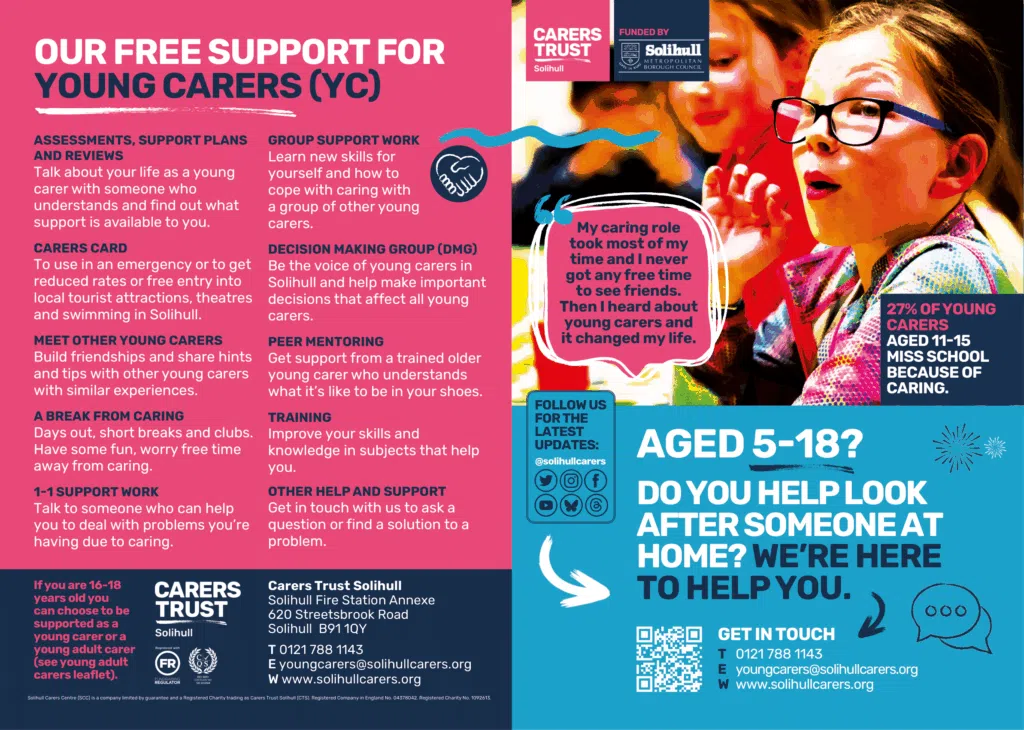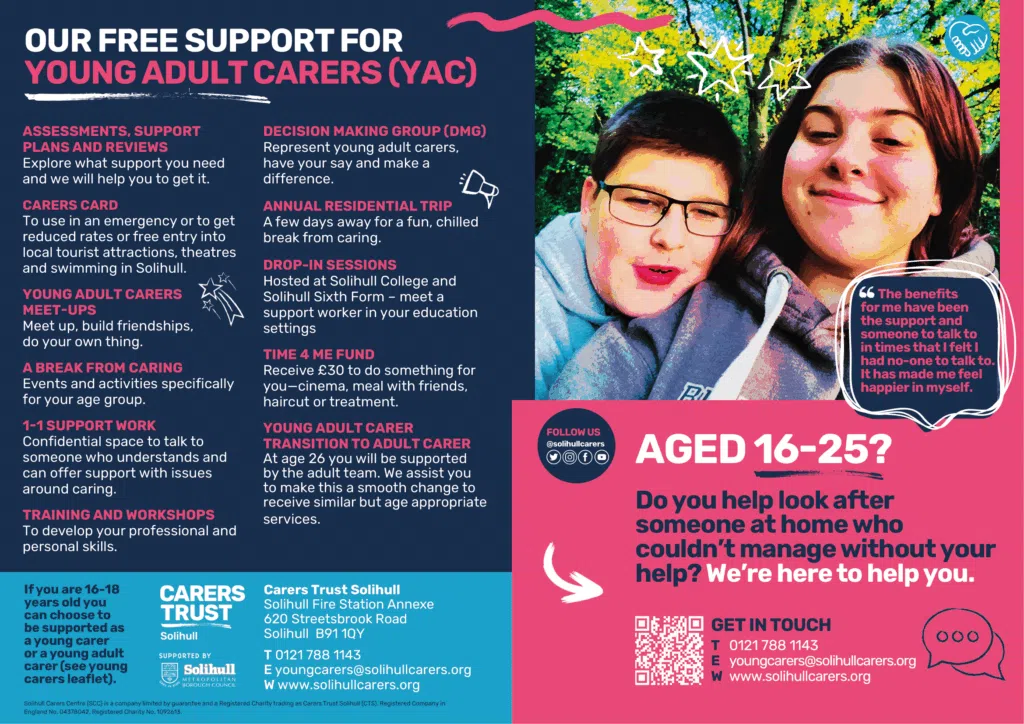Health & Social care Professionals
No matter your role in health and social care—whether you’re a nurse, GP, social worker, care coordinator, therapist, or support staff—you have the power to make a meaningful difference in the lives of unpaid carers.
By recognising and supporting them, you can help ease their caring responsibilities and give them the opportunity to thrive.
There are around 5.4 million unpaid carers in England
You may be the first person a carer opens up to about their situation. The NHS Long Term Plan and Care Act 2014 both underline the importance of identifying and supporting carers early. Yet many still slip through the net. According to Carers UK, over 5.7 million people across the UK are currently providing unpaid care — and many more remain hidden. In Solihull, around 27,000 residents identified as unpaid carers in the 2021 Census, but that figure is widely acknowledged to be an underestimate.
Carers often delay identifying themselves or seeking help. Many don’t realise that they are entitled to support, and may not be aware of services like Carers Trust Solihull. This means that unless health and social care staff take proactive steps to recognise caring roles, carers miss out on vital early intervention — and in many cases, only come to our attention in crisis.
- Unpaid carers provide care worth an estimated £162 billion a year, more than the entire NHS budget.
- Over 50% of unpaid carers take over a year to recognise themselves as a carer.
- Over 27,000 identified unpaid carers live in Solihull - more than 12% of the population.
- Over 3,000 unpaid carers in Solihull receive support from Carers Trust Solihull — but many more remain hidden.
- Professionals are often the first (and sometimes only) opportunity to identify and support them.
- Without early identification, carers miss out on: Carer’s Assessments (a legal right) Emotional and financial support. Help that can prevent burnout or crisis.
- 70% of carers report poor mental health, and 60% live with long-term physical health conditions.
- 1 in 3 carers report putting off treatment for themselves due to caring duties.
- Two-thirds of carers feel that health and care services don’t value or listen to them.
- Many report being excluded from hospital discharge discussions or being expected to take over care with no training, consultation, or support.
- Around one in three NHS staff in England (32%) also have unpaid caring responsibilities—estimated by Carers UK to total over half a million individuals. Among NHS staff aged 51 to 65, 43% are carers.
- The number of carers increased by 1 million during the COVID-19 pandemic.
'Think Patient - Think Carer'
It is vital that unpaid carers of all ages are identified and understood in healthcare settings so that they can get access to the support they need. We develop connections with GP surgeries, hospitals, and other health professionals including school nurses to spread awareness of the needs of carers and how professionals in these settings can ‘Think Patient – Think Carer’
We work with health professionals in NHS and other independent settings including UHB Hospitals, Solihull GP Surgeries and Pharmacies. These settings are crucial locations to reaching carers. Unpaid Carers are an integral part of support for patients, attending appointments, helping with transport and mobility, communication, fetching prescriptions, providing medication, all ensuring that those they care for stay well.
We inform health professionals to recognise the importance of carers and encourage ways that they can participate with carer support within their own health settings, such as joining the GP Carers register, providing carers information in health zones and working at events to keep carers well and informed.
We also work in these settings to reach carers and health staff face to face, giving out printed information and guidance. The most important outcome is that carers are equipped to reach support should they need it now or in future.
If you are a health professional and would like to know more or have your own ideas on how to unpaid carers identify themselves as such, please contact our Health Engagement Lead: lindahewitt@solihullcarers.org

How you can support unpaid carers
As professionals, you are in a unique position of trust and influence. You may be the first person a carer opens up to about their situation. The NHS Long Term Plan and Care Act 2014 both underline the importance of identifying and supporting carers early. Yet many still slip through the net. According to Carers UK, over 5.7 million people across the UK are currently providing unpaid care — and many more remain hidden. In Solihull, around 27,000 residents identified as unpaid carers in the 2021 Census, but that figure is widely acknowledged to be an underestimate.
Carers often delay identifying themselves or seeking help. Many don’t realise that they are entitled to support, and may not be aware of services like Carers Trust Solihull. This means that unless health and social care staff take proactive steps to recognise caring roles, carers miss out on vital early intervention — and in many cases, only come to our attention in crisis.
This has serious consequences. The physical and mental toll of caring is well evidenced. 70% of carers report poor mental health, and 60% report long-term physical health problems, often as a direct result of their caring role. Many are struggling with exhaustion, stress, isolation, and financial hardship. Young carers, in particular, are vulnerable to poor educational outcomes, social exclusion, and emotional strain. When carers are unsupported, the person they care for is also more likely to deteriorate or be readmitted to hospital — adding further pressure to the health and social care system.
Professionals are not expected to do everything — but you do have a duty to do something. You can make a lasting difference by routinely asking about caring responsibilities during assessments and consultations.
Simply asking, “Do you look after someone who wouldn’t manage without your help?” can open the door to early support and signposting.
Once a carer has been identified, recording that information in clinical or case records, and referring to appropriate services, such as Carers Trust Solihull, becomes a straightforward but vital next step.
If you have ever seen our staff and volunteers at events or in public, they’d be made visible by their large standees, and handing out flyers, leaflets and posters. These materials have been eye-catching in the busiest of shopping centres, and have been placed in schools, GP’s offices and employers offices, among others. They have been effective in helping those who are caring, that they are in fact unpaid carers.
Making sure unpaid carers know that they are carers is one of the most difficult barriers we often face. After all, many people believe the care they provide is a way of life, and they are simply doing what they had to do.
Our print and digital materials have been made available to you, so you can use them throughout your professional settings. We have worked with GPs who have placed our leaflets inside prescription bags, and these have been incredibly effective. Posters and leaflets could be placed at your reception, and they can be displayed on advertising boards or screens that you have in your waiting rooms.
As unpaid carers often struggle to leave the home due to caring duties, they will book and arrange doctors/prescriptions appointments online. Adding our information to your website/patient portal would help these unpaid carers know that help is out there.
If you are a health professional, please, Think Patient – Think Carer, and to know more, contact our Health Engagement Lead: lindahewitt@solihullcarers.org
- Ask the question routinely: During consultations, assessments, hospital admissions, or discharge planning, ask: “Do you look after someone who couldn’t manage without your help?”
- Listen for signs of caring responsibilities: Pay attention when people mention helping a family member or friend with tasks such as personal care, medication, transport, or emotional support.
- Use carers’ language, not jargon: Many carers don’t use the word “carer” — they might say “I’m just helping my mum” or “He’s my partner; I do it because I love him.”
- Record caring status clearly: Make sure the carer’s role is noted in medical, care, or school records, and shared with appropriate colleagues (with consent).
- Know your statutory duties: Under the Care Act 2014, all adult carers have a right to a Carer’s Assessment; young carers are protected under the Children and Families Act 2014
- Refer to local carer support services: In Solihull, professionals can refer to us for free, confidential advice, emotional support, activities, breaks, and advocacy. Website: http://www.solihullcarers.org/refer-carer
- Include carers in decision-making: Involve carers in care plans, discharge decisions, and reviews — they are expert partners in the care process.
- Be alert to carer strain: Watch for signs of physical exhaustion, anxiety, depression, or financial hardship, and offer support or referrals.
- Support young carers too: Ask children and young people if they help care for a parent or sibling. Schools, GPs, and youth services all have a role in identifying young carers.
- Promote carer-friendly resources: Display carer information in waiting areas, websites, newsletters, and digital platforms. Use GP systems to invite carers for annual health checks.
- Train your team: Make carer identification and support part of staff induction, safeguarding training, and supervision discussions.
download resources & posters
You are free to use these resources in your place of business to help hidden carers be seen.
sources & references
Contains national statistics on carer health, finances, and experiences with services
Frameworks and tools to support carer identification and engagement in clinical settings.
Data on number of unpaid carers at national, regional, and local authority levels, including Solihull.
Summary statistics and economic value of unpaid care in the UK.
Prioritises better recognition and support for carers, including young carers.
National charity with briefings on carer identification, education, and rights.
How we support unpaid carers
Carers ID Card
Carers in Solihull registered with our service will receive a Carers Identity Card. This card is a handy tool for carers and has 3 main functions
- Quick access to emergency contacts
- Proof of being a carer
- Concessions and free entry to providers
We encourage carers to keep their card in the purse or wallet as this can be a useful tool should you be in an emergency. You can use this for telephone numbers of whom to contact in an emergency and to alert others you are caring for someone who may need help back at home.
You can find our concessions list here
As much as we aim to keep our concession lists up to date, we encourage carers to always check concessions in advance to avoid disappointment. If you know of any changes to current concessions or others not noted, please let us know.
Information & Advice
Getting the right information at the right time can make caring a lot easier. Our Carer Practioners have specialised knowledge to help and guide you on your caring journey.
Emotional Support
A listening ear when you need one, you can call us on 0121 788 1143 and speak to one of the team.
Carers face many challenges, including isolation, exhaustion, and a wide range of emotions that can sometimes feel overwhelming. While talking to a trusted friend or family member can be helpful, it’s often easier and sometimes more effective to speak with someone outside your immediate circle.
We’re here to offer you the opportunity to talk to someone who understands what you’re going through and can support you with the challenges you face.
Carer's Assessments & Support Plans
We are commissioned by Solihull Council to carry out Carers Assessments and Support Plans for carers who care for someone living in Solihull.
A Carers Assessment gives you the opportunity to discuss your caring role, how it impacts different areas of your life and identify what support would be helpful to you. It is a supportive process, where our staff will listen to you without judgement. After the assessment, a support plan will be produced identifying areas of support needed and how these needs can be met.
You can read more about assessments here —
Alternatively, if you would like more information or to request an assessment, please contact us on 0121 788 1134.
Events & Activities
It is important for carers to take a break from caring. We offer a wide range of events and activities that offer respite opportunities for carers, such as:
Day Trips – local attractions / theatre / family beach days
Relaxation Sessions – free relaxation appointments for carers including massage, Reiki and Reflexology
Vouchers – opportunities to receive a cinema or eat out voucher to use independently for a break.
Monthly meet ups – Where carers join us for a cuppa and chat.
On many of our day trips, the person you care for can come along with you (subject to age and capability).
You can find out what’s on and register your interest on our online calendar.
Training & Workshops
We offer a variety of free training workshops to help carers to feel confident and supported in their caring role. Some of our sessions include:
- Contingency planning
- Wills and Power of Attorney
- Benefit advice
- Stress management
- End of life
- Caring for someone with Dementia
- And more
Our sessions are held face to face and online, check out our what’s on page to find out about what sessions we have coming up.
Our Trained Befrienders Are Here For You
Caring can be isolating, and many carers feel the benefit from peer support or talking to others who understand but are not linked to you or your caring situation (for example family or friends).
Our Befrienders are friendly and non-judgmental, ready to listen and help.
This service is an opportunity for you to regularly check in with a matched volunteer to discuss anything on your mind. Befrienders can help you achieve personal goals, source local activities and help navigate services. They can also support you to build confidence and skills or give you the time to be heard.
If you are interested in our befriending service, please contact centre@solihullcarers.org
Online/Digital Support
We have a variety of online resources to help support you in your caring role, whether you are new to caring or have been caring for a while, there is something useful for everyone.
Carers Essential Guides – these guides cover the basics and important topics we think every carer should know about.
Blogs and News – find out the latest news for carers and useful blogs covering a range of topics.
Videos – We have a range of informative videos, some of carers sharing their experiences, professionals advising on benefits, energy costs, health, legal matters and awareness campaigns such as Carers Rights Day
Podcast – Our very own podcast ‘Carers Talk’, where we talk to professionals about carers topics, and other unpaid carers share their experiences, stories, tips and advice. It’s full of useful information we think is important for carers to know.
E-learning – We have created a contingency planning e-learning tool to help you build your own emergency plan. You can do this at your own time in the comfort of your own home.
Health & Wellbeing stories
It is critical for unpaid carers to be identified early so they can get the right support at the right time.
If you’re a carer and would like to share your story, please contact us by clicking here
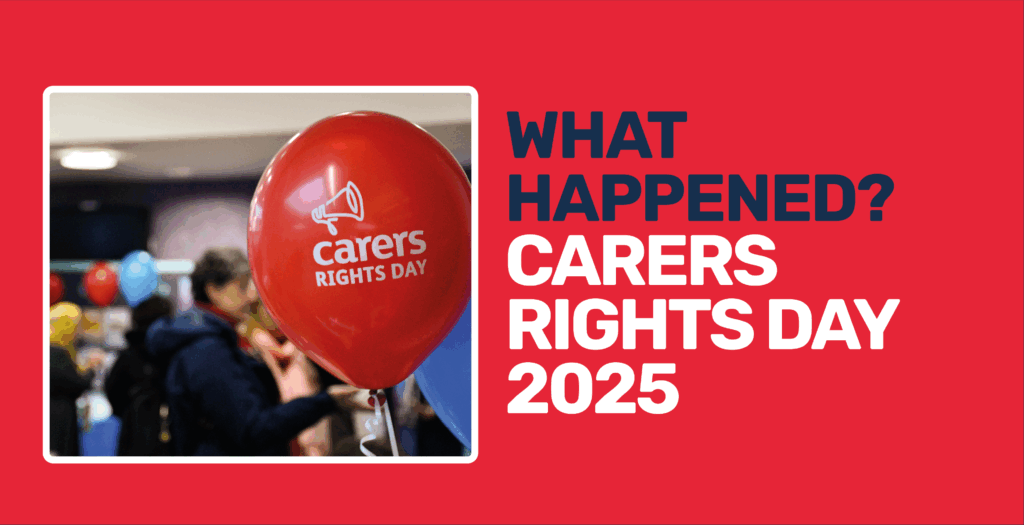
- 27 minutes |
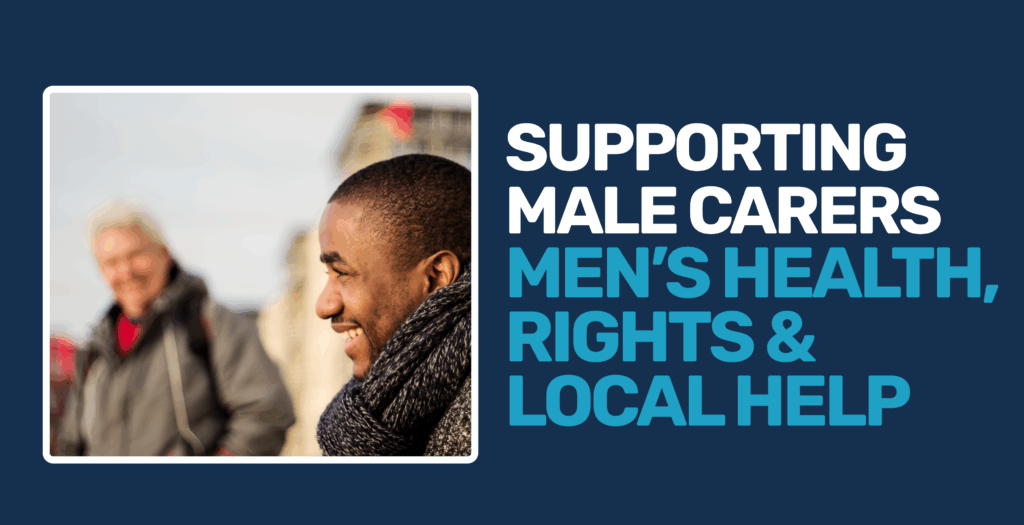
- 6 minutes |
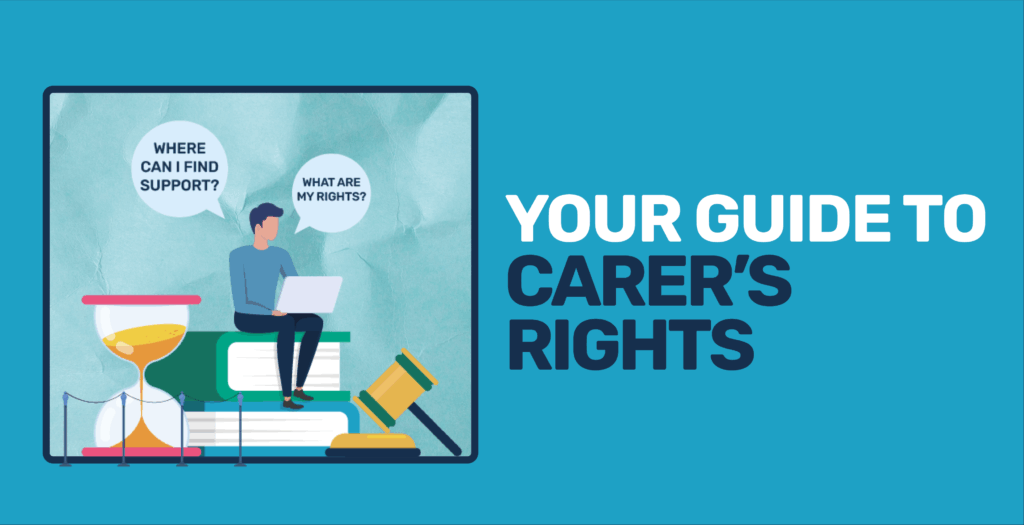
- 41 minutes |
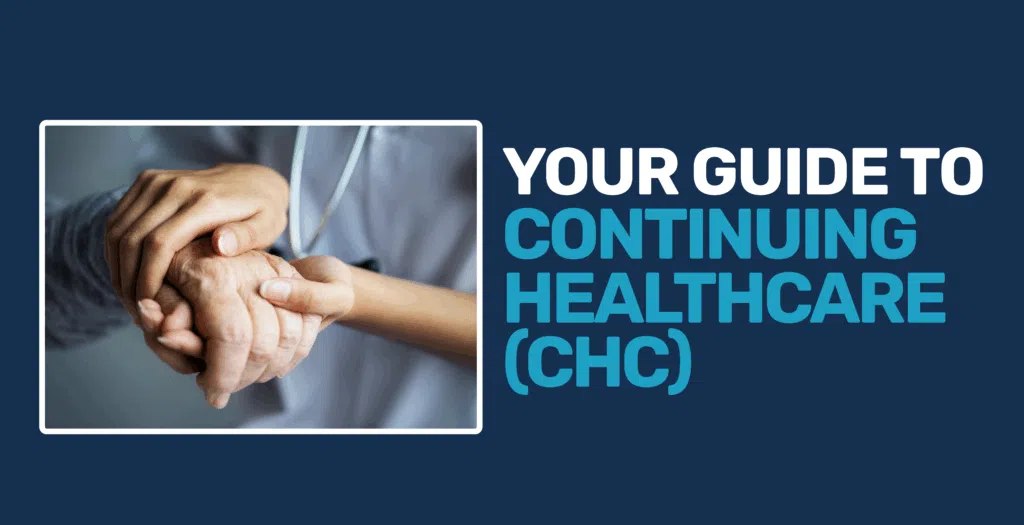
- 3 minutes |
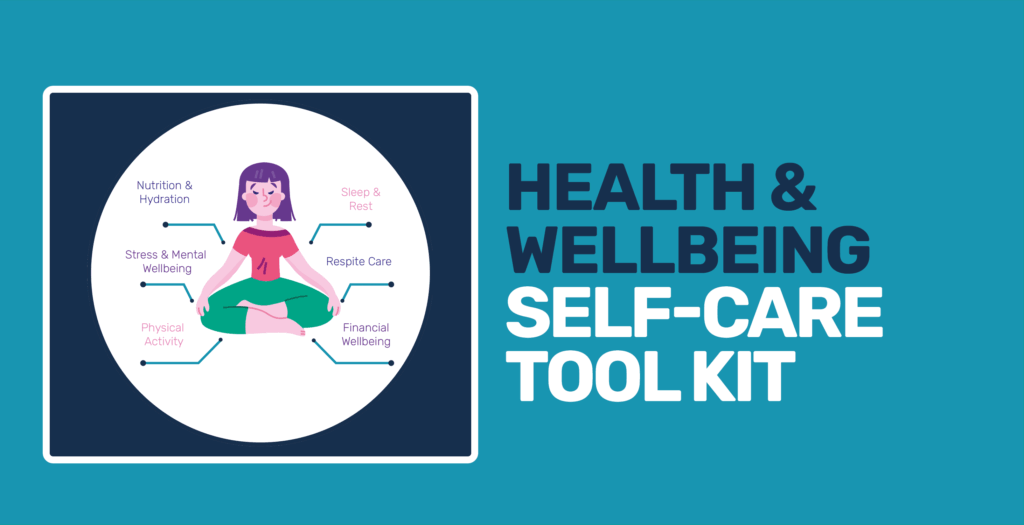
- 20 minutes |
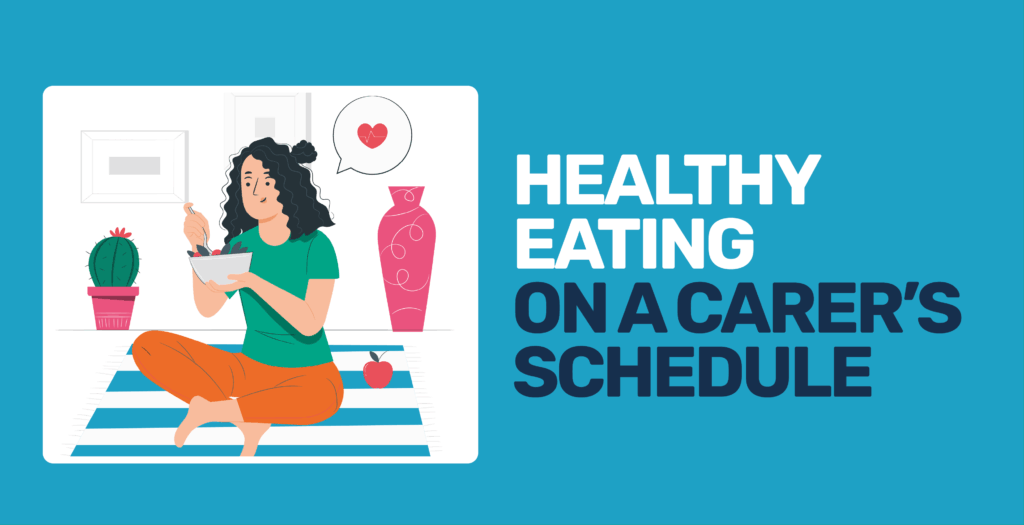
- 18 minutes |
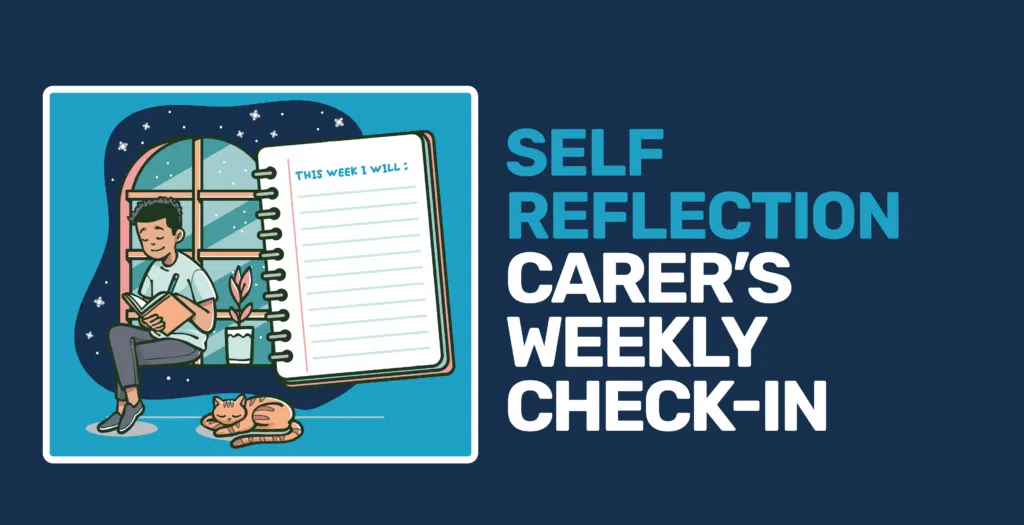
- 3 minutes |
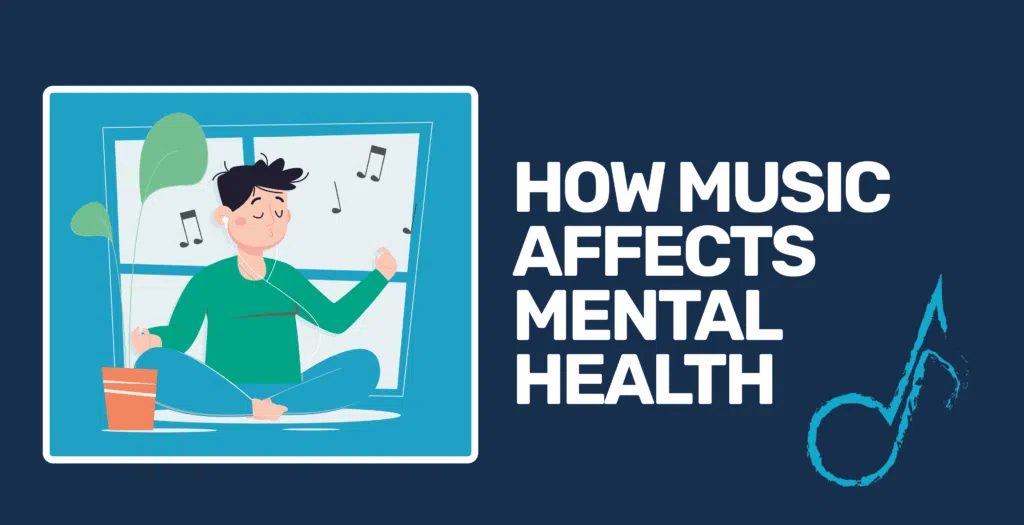
- 11 minutes |
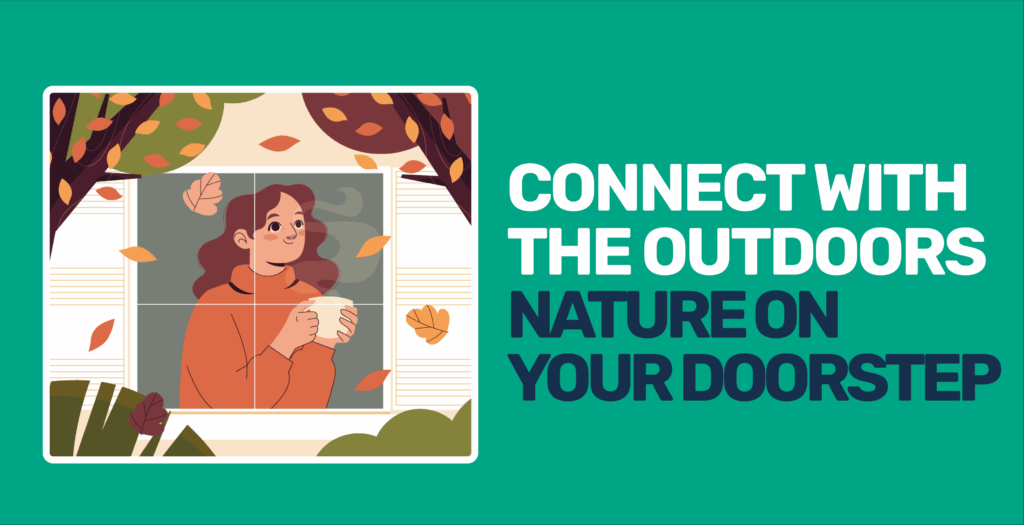
- 5 minutes |

- 8 minutes |

